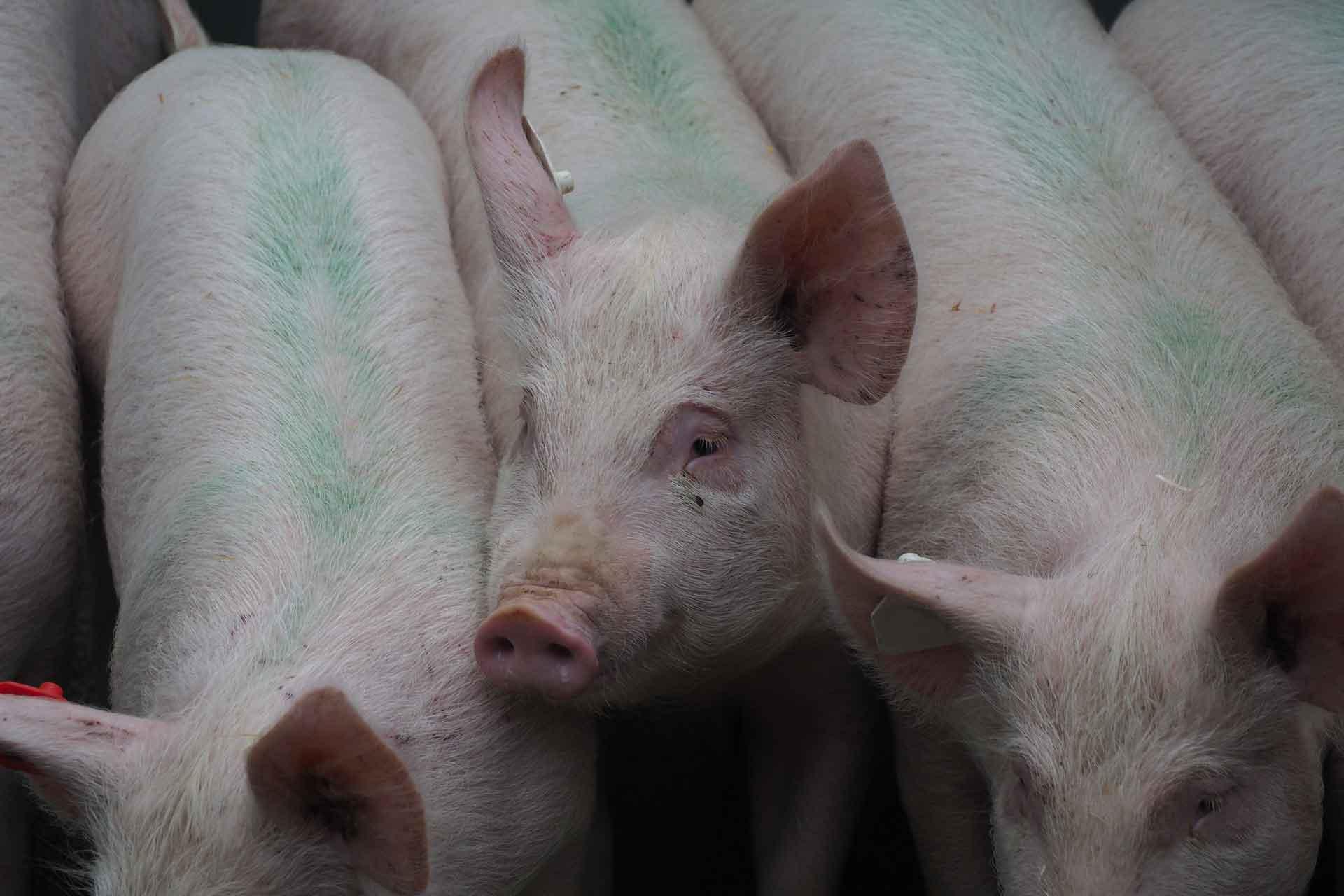Effective flu vaccines are crucial for controlling disease outbreaks in pigs and reducing the threat of transmission to humans. A collaboration between The Pirbright Institute, the Animal and Plant Health Agency (APHA), the University of Edinburgh and The Jenner Institute has shown that several vaccines for the 2009 swine flu pandemic virus (H1N1) were able to reduce signs of disease and virus shedding in pigs, but that immunised pigs could still pass the virus on to unvaccinated pen mates.
In a paper published in the Journal of Virology, the team assessed the ability of four vaccines, including viral vectored vaccines, to prevent pigs shedding the virus into their environment after they were challenged with the H1N1 pandemic strain, and whether this would result in transmission to unvaccinated pigs housed in the same area. None of the vaccines were able to prevent pen mates from becoming infected, but two vaccines that produced high levels of antibodies lowered the amount of virus that pigs shed, which delayed its spread to the other animals.
These findings suggest that even if the vaccines significantly reduce infection in pigs, they are unable to entirely interrupt H1N1 transmission, although they may slow its spread through a herd. They also show that a robust antibody response can predict a reduction in virus shedding, but that this does not necessarily mean transmission will be prevented.
The study provides a stringent model to assess whether vaccines will be effective in both protecting pigs from disease and halting the spread of swine flu between animals. This knowledge is important for informing disease surveillance and control strategies, and to determine the vaccine coverage required to protect a population.
Preventing spread is not only essential for reducing the impact of swine flu on pig welfare and the pig industry but is vital for limiting the possibility of infections arising in people. Without curbing outbreaks, new strains of swine flu could emerge in human populations as the 2009 H1N1 swine flu virus did, which was estimated by the Centres for Disease Control and Prevention (CDC) to have caused between 151,700 - 575,400 deaths worldwide during the first year the virus circulated.
Professor Bryan Charleston, Director of Pirbright, said: “Most vaccine studies assess the protection offered to individual animals against disease, but few investigate whether immunised animals are still able to spread infection. Our findings clearly show that an influenza vaccine must significantly decrease or eliminate shedding of infectious virus to prevent onward transmission, otherwise even ‘immune’ pigs may still spread the virus to other animals, including humans.”
This study was funded by the Biotechnology and Biological Sciences Research Council (BBSRC), part of UK Research and Innovation (UKRI).
